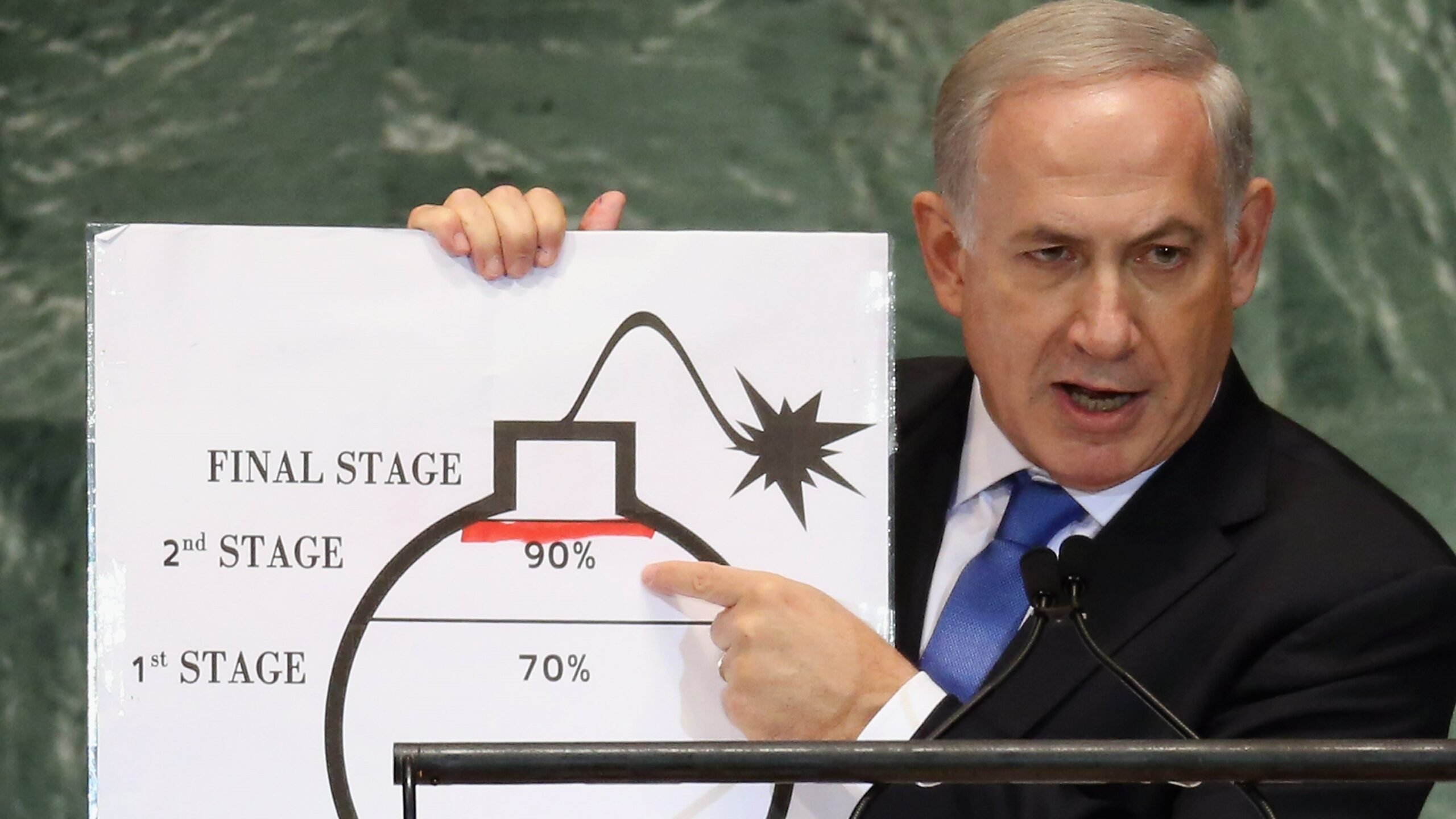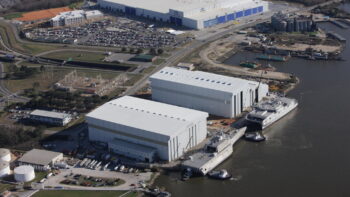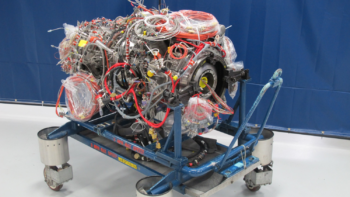
Benjamin Netanyahu, then Prime Minister of Israel, points to a red line he drew on a graphic of a bomb while addressing the United Nations General Assembly on September 27, 2012. (Mario Tama/Getty Images)
TEL AVIV — With the return of Benjamin Netanyahu as prime minister, bolstered by a wave of right-wing support, the idea that Israel would be willing to go it alone with a military strike against Iranian nuclear facilities is once more at the forefront of military observers — as are questions about whether Israel is prepared for the response.
Just days after Netanyahu’s political rebirth, one of his closest political associates said that the military option will be on the table for the new government.
Tzachi Hanegbi a minister in the last Netanyahu government said in a Nov. 4 interview with Channel 12 that Netanyahu “would act, in my perspective, to destroy the nuclear facilities in Iran” if Israel feels that Iran is going to achieve a nuclear weapon. “In my assessment, he’ll have no choice but to strike Iran’s nuclear facilities like previous prime ministers ordered to destroy a nuclear facility in Iraq in 1981 and like an order was given in 2007 to destroy the nuclear facility in Syria,”
Hanegbi, a longstanding Likud MK and former minister who placed 46 on the party’s slate in the primaries and is not anticipated to be elected to the new Knesset, has previously threatened an Israeli strike to stop Iran from building a nuclear weapon. However, Hanegbi’s ties to Netanyahu — already viewed as a hawk on Iran — meant that his comments raised eyebrows.
Israeli senior defense sources told Breaking Defense that at this moment, Israel is very limited in its options for such a strike, but “things are being done,” as one source said, and it is expected that additional budgets will be allocated for this option, under the assumption Israel may have to act alone.
The big question around any Israeli attack on Iran is what role, if any, the US would play. When Netanyahu was last in power and Donald Trump was president in Washington, there was more expectation that the US might support a first-strike in Iran. However, under President Joe Biden, such an option appears to have been taken off the table, especially as Washington continues to hope for a return to the Iran nuclear agreement (a deal, it is worth noting, Netanyahu was famously opposed to).
The second question is whether a military operation launched by Israel could actually stop the Iranians from achieving military nuclear capability, and whether Israel is prepared for the almost certain retaliation by Iran that would come afterwards.
Tamir Hayman is the managing director of the Institute for National Security Studies (INSS). During his 34 years of service in the Israeli Defense Forces, Hayman held a wide range of command positions in the ground forces (armored corps and infantry) and in 2018 was appointed head of the Intelligence Directorate. He told Breaking Defense that in his opinion, Israel has the capabilities to pull off such a strike.
“As time passes the effectiveness of such an option gets better. Capabilities are being upgraded. Such a military act is a very real option,” he said, before declining to go into what timeline might be realistic.
However, a senior defense expert who talked with Breaking Defense on condition of anonymity said that an Israeli attack on the Iranian nuclear facilities will not achieve the needed results, as Israel is not equipped with heavy bunker-buster weapon systems like the GBU-43/B Massive Ordnance Air Blast (MOAB).
“Without such weapon systems the Israeli capability to destroy the Iranian underground nuclear facilities is very limited,” the expert said. “But the US has taken a military option off the table, and that leaves Israel to deal with the problem with what she has.”
The expert added that any Israeli military action against the Iranian nuclear program will bring an immediate Iranian retaliation, with its only long-range systems: ballistic missiles. “The Israel multi-layered system for the intercept of ballistic missiles is operational, but the investment in its upgrade is too slow, too little,” the expert warned.
The Israeli Arrow 2 and 3 are capable of intercepting such missiles, but sources added that this will not be enough if Iran responds with an all-out assault. “Attacking the Iranian launch sites will be required to keep the threat in a reasonable level,” one source said.
Such an attack is complicated as the Iranians have built launch silos in different parts of Iran. The launch from a silo makes it hard for intelligence sensors, mainly satellites, to detect the preparations for launch. According to a report from 2021, satellite imagery obtained by the International Institute for Strategic Studies revealed the construction of a new set of seven silos storing advanced new missiles in southern Iran.
The Iranian ballistic missiles program is advancing parallel to its nuclear one. On Saturday, Iran tested what it described as a “satellite launcher,” known as the Ghaem-100. The system is a solid-fuel rocket, manufactured by the aerospace organization controlled by the Islamic Revolutionary Guard Corps. It is Iran’s first three-stage solid-fuel satellite launcher.
According to the Iranian official statement Ghaem-100 “is capable of placing satellites weighing 80 kilograms (176 pounds) in an orbit 500 kilometers (just over 300 miles) from the surface of the earth,” it said.
Israeli defense sources have told Breaking Defense that Jerusalem considers everything Iran does under the claim of “satellite launchers” to be in support of its military ballistic missile capabilities.
L3Harris selloffs hampered by low bids, CEO says
“To the extent we can get a good price for what we’ve identified as non-core [businesses], we’ll do it. But too many of the offers are coming in low and people think we’re desperate to sell, and I can assure you we’re not,” said L3Harris CEO Chris Kubasik.


























